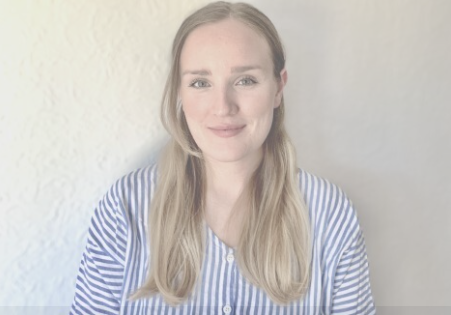20 Years of MSW – Catrin Noone
As we celebrate 20 years of the Master of Social Work (MSW), let’s meet Catrin Noone, Lecturer in Social Work in Durham University’s Department of Sociology.

Please tell us about your role within Sociology/MSW.
I joined the department as a Lecturer in Social Work in 2023. This year (24/25) I will convene the MSW Y1 module ‘Social Work in Context’ and co-convene the UG Sociology Y1 module ‘Societies in Transition’. I currently act as a practice tutor and dissertation supervisor across the MSW and wider Sociology Department.
What is your research specialism / areas of interest?
My research specialisms include gerontological social work and participatory action research, with a particular focus on older people’s experiences of loneliness.
How did you become involved with MSW?
I first became involved with the programme as an MSW student in 2017, completing placements in both a generalist day centre for older people and Adults Community Team. After finishing the course in 2019, I remained in the Department to pursue an ESRC NINE DTP funded PhD, which I completed in 2023. My doctoral research was in collaboration with the same day centre where I completed my Year 1 MSW placement.
Why are you so passionate about Social Work and the work your department does?
Social Work offers a unique opportunity to engage with some of the most marginalised members of our society and be a force for positive change. At Durham, we embrace the global definition of Social Work, which emphasises social change and development, social cohesion, and the empowerment and liberation of people. These principles are integral to our curriculum, our teaching methods, and the diverse voices we bring into the classroom, reflecting the broader values of the Sociology Department.
Our commitment to these values is also demonstrated through the wide range of placement opportunities available to our students, enabling them to gain experience in a range of settings that align with their interests and lived experiences. Additionally, we maintain a critical perspective on overly bureaucratic processes in the profession, ensuring that our focus remains on relational and compassionate practice – an approach that underpins my own research and practice.
How does your work impact communities / the world around you?
I am motivated to transform how we understand and conceptualise the social worlds of older people in receipt of social services, particularly in relation to experiences and understandings of loneliness and day centre services. My work focusses on advocating for and implementing innovative methods and approaches to amplify the voices of marginalised older people, ensuring they are heard in both classroom and research settings. By doing so, I aim to foster a deeper, more inclusive understanding of their needs and experiences, ultimately contributing to more effective and compassionate social care.
What’s been your proudest moment working on the MSW?
My proudest moment working on the MSW has been visiting students during their first placements and witnessing the remarkable transformation in their confidence and skills. It is incredibly rewarding to see our teaching and their learning manifest in diverse and often challenging settings, and witness students’ professional development in a short amount of time.
What would you say to something thinking about working in Social Work?
If you are guided by values of empathy and social justice, then social work is the profession for you. A social work qualification not only allows you to practice in line with your values but also opens up a wide range of opportunities in the social care sector. Go for it!
How has your subject changed in the last 20 years? Or have the key fundamentals stayed the same?
Over the past 20 years, the professional landscape of social work with older has evolved significantly, often becoming more bureaucratic and risk-averse in times of austerity and crises. Despite these challenges, many practitioners and researchers have reimagined and innovated social work practice. Recent developments in age-friendly initiatives and inclusive technologies are particularly promising, for example. The challenge now is to pursue innovation while remaining steadfast in our commitment to the core values of social work. The future is bright!
Find out more
- Catrin Noone, Lecturer in Social Work in the Department of Sociology. Catrin teaches in the Master of Social Work. If you would like to find out more about Catrin, visit her profile.
- If you’d like to share your story or insights into your work, visit our Submit a blog or vlog page to learn more.
